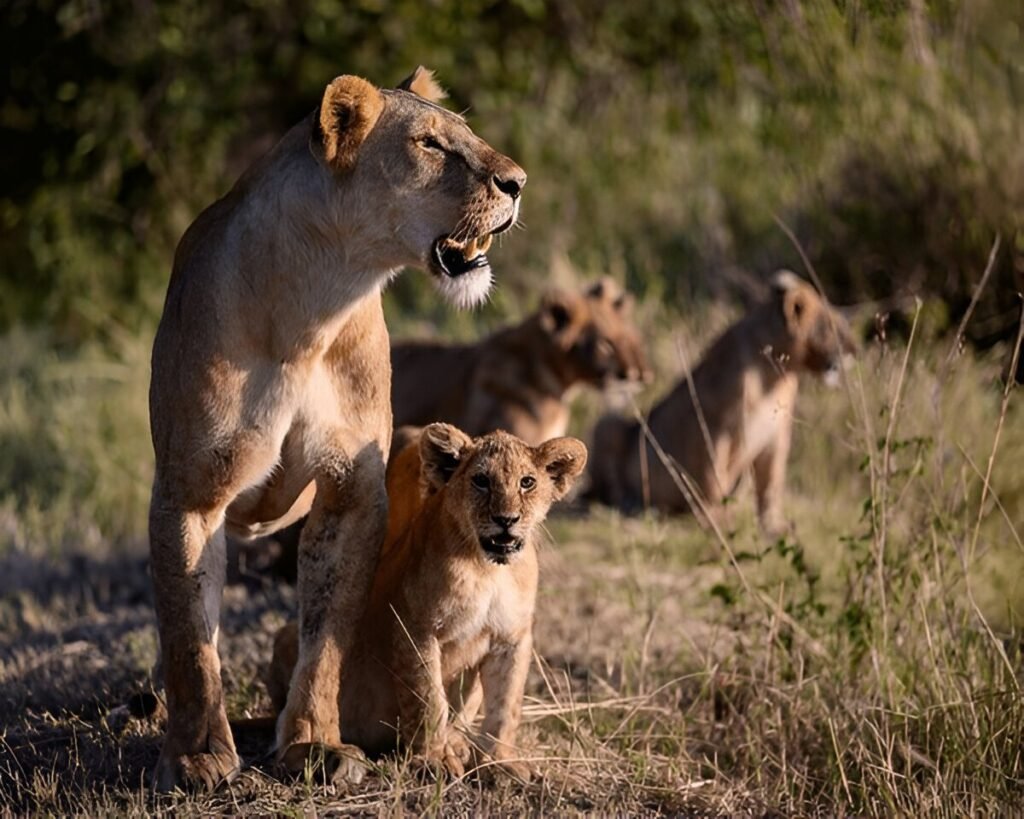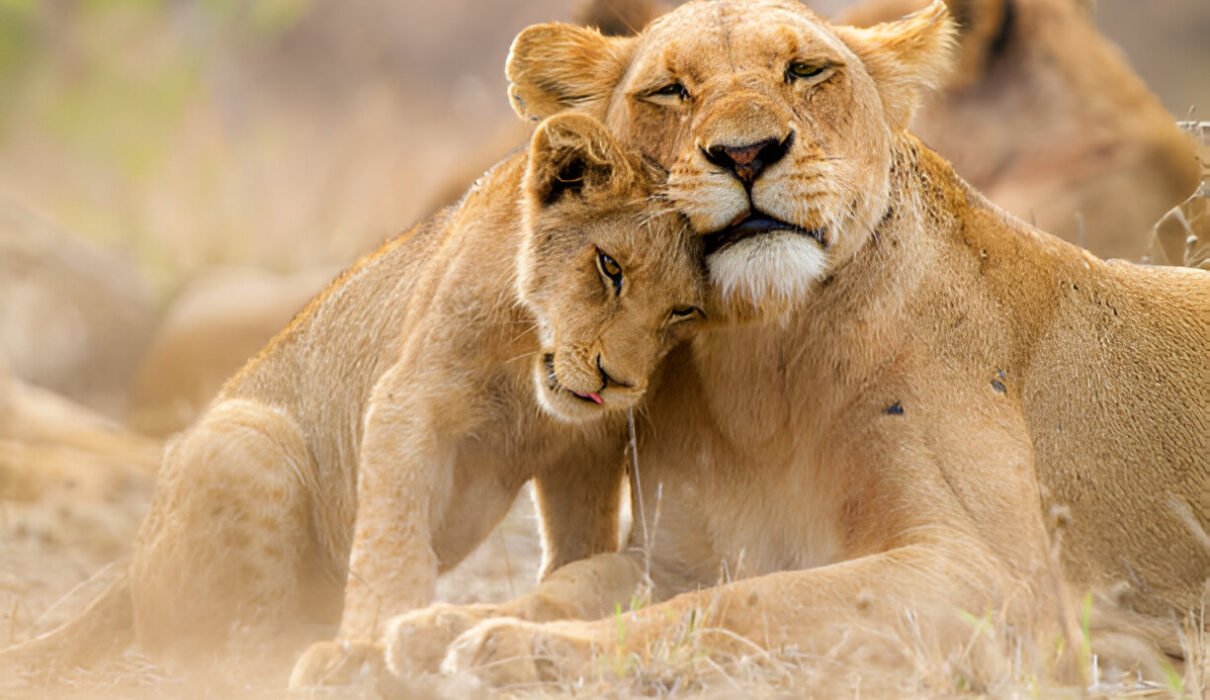What to Pack for an African Safari : Preparing for an African safari requires thoughtful planning, especially when it comes to packing. Whether you’re heading to the Serengeti, Ngorongoro Crater, or Kruger National Park, knowing what to bring can make your experience more comfortable and enjoyable. In this guide, we’ll cover the essential gear, clothing, and accessories you need to pack for an African safari, ensuring you’re well-prepared for every adventure.
Explore African safari options and expert travel advice here.

What to Pack for an African Safari : Safari Clothing: What to Wear in the Wild
What to Pack for an African Safari : When choosing clothing for your safari, prioritize comfort and practicality. Lightweight, breathable fabrics are ideal for warm days, while layers will help you stay comfortable in cooler mornings and evenings. Neutral colors like khaki, olive, and brown are best for blending into the environment.
What to Pack:
- Lightweight, Long-Sleeved Shirts: Protects you from the sun and insects.
- Convertible Pants/Shorts: Easily switch between pants and shorts depending on the weather.
- Fleece Jacket or Sweater: Nights and early mornings can be cold, especially in the open savannah.
- Comfortable Hiking Shoes: Sturdy, closed-toe shoes are essential for walking safaris and bushwalks.
Learn more about appropriate safari clothing and tips.
What to Pack for an African Safari : Sun Protection: Stay Safe Under the African Sun
The African sun can be intense, so it’s crucial to pack sun protection to keep your skin safe. Sunburn can happen quickly, even on overcast days, so always be prepared.
Must-Have Items:
- Wide-Brimmed Hat: Protects your face and neck from the sun.
- Sunscreen (SPF 30 or higher): Opt for a broad-spectrum sunscreen that protects against both UVA and UVB rays.
- Sunglasses: Polarized sunglasses will reduce glare and protect your eyes from the sun’s harsh rays.
- Lip Balm with SPF: Don’t forget about your lips, which can easily get sunburned.
Get more tips on how to protect yourself from the sun while on safari.
What to Pack for an African Safari :- Safari Gear: Essential Equipment for Wildlife Viewing
For wildlife viewing, having the right gear can enhance your safari experience. Binoculars and a good camera are must-haves to capture the beauty of African wildlife from a distance.
Recommended Safari Gear:
- Binoculars: A quality pair of binoculars will allow you to see animals in the distance more clearly. Look for 8x or 10x magnification.
- Camera with Zoom Lens: A camera with a zoom lens (at least 200-300mm) will help you capture stunning wildlife shots.
- Extra Camera Batteries and Memory Cards: Safaris are full of photo opportunities, so bring extras to ensure you don’t run out of storage or power.
- Dry Bag or Waterproof Cover: Protect your electronics from dust, dirt, and unexpected rain showers.
Discover the best safari gear for wildlife viewing.
What to Pack for an African Safari :- Health and Hygiene Essentials
Staying healthy and comfortable on safari is essential. From preventing insect bites to staying hydrated, packing the right health and hygiene items can make a big difference.
Health Must-Haves:
- Insect Repellent (DEET-based): Protect yourself from mosquitoes and other insects that may carry diseases like malaria.
- Antimalarial Medication: Consult your doctor about malaria prevention if you’re visiting a high-risk area.
- Hand Sanitizer and Wet Wipes: Safaris often involve long drives in the bush, so hand sanitizer and wet wipes are useful for staying clean.
- First Aid Kit: Pack basics like band-aids, antiseptic cream, pain relievers, and any personal medications.
- Rehydration Salts: Useful in case of dehydration, especially in hot climates.
Read more about staying healthy on your African safari.

What to Pack for an African Safari :- Packing for Changing Weather
African weather can vary greatly depending on the season and location. Be prepared for cold mornings, hot afternoons, and potential rain, especially if you’re traveling during the rainy season.
Weather Gear to Pack:
- Light Rain Jacket: In case of rain, a lightweight, waterproof jacket will keep you dry without adding too much bulk.
- Buff or Scarf: Helps protect you from dust and sun exposure while on game drives.
- Warm Hat and Gloves: For early morning game drives in cooler months, especially in high-altitude areas like the Ngorongoro Crater.
Learn more about preparing for different African climates.
What to Pack for an African Safari :- Travel Documents and Money
Ensure you have all your travel documents and financial essentials packed and easily accessible during your safari. This will make your trip smoother and avoid unnecessary stress.
Important Documents:
- Passport and Visa: Make sure your passport is valid for at least six months from your entry date and that you have any necessary visas.
- Travel Insurance: Choose a travel insurance plan that covers medical emergencies, cancellations, and travel delays.
- Cash in Local Currency (Tanzanian Shillings or South African Rand): Most safari lodges accept credit cards, but cash is useful for tips and small purchases in local markets.
- Vaccination Certificates: Some countries require proof of vaccinations (such as yellow fever), so carry these documents with you.
Learn more about required travel documents for safaris.
What to Pack for an African Safari :- Safari Snacks and Hydration
While most safari lodges and camps provide meals, it’s always a good idea to bring some of your own snacks and stay hydrated during long game drives.
What to Pack:
- Energy Bars and Snacks: Granola bars, dried fruit, and nuts are easy to carry and provide a quick energy boost.
- Reusable Water Bottle: Staying hydrated is important, especially in hot weather. Bring a reusable water bottle to refill throughout the day.
- Electrolyte Tablets: Great for replenishing salts and minerals lost during hot game drives.
Explore more about keeping hydrated and energized on safari.
What to Pack for an African Safari ;- Electronics and Gadgets
Bringing a few essential electronics will help you stay connected, capture memories, and ensure a smooth travel experience.
What to Bring:
- Portable Charger/Power Bank: Useful for recharging your phone, camera, and other devices when outlets aren’t available.
- Travel Adapter: Check the plug type for the country you’re visiting and bring a travel adapter to charge your electronics.
- Headlamp or Flashlight: Essential for navigating camps and lodges at night.
Get more tips on useful electronics to pack for your safari.
Lightweight Luggage for Safari Vehicles
Space in safari vehicles is often limited, so it’s important to pack efficiently and use soft, lightweight luggage. Duffel bags are a better option than hard-shell suitcases as they are easier to store in tight spaces.
- Recommended Luggage: Soft duffel bags with a maximum weight of 15-20kg (depending on airline restrictions).
- Daypack: A small daypack is useful for carrying essentials like water, camera gear, and sunscreen during game drives.
Learn more about the best safari luggage to bring.
What to Pack for an African Safari : Be Prepared for the Unexpected
An African safari can bring you face-to-face with unpredictable wildlife and weather. Being prepared for the unexpected will make your journey smoother and stress-free.
- Backup Power for Devices: Game drives can be long, so a portable power bank ensures your phone or camera won’t run out of juice.
- Extra Memory Cards: You’ll be taking plenty of photos, so having extra memory cards is a must.
- Emergency Contacts: Keep a list of emergency contacts, including your tour operator, lodge, and local embassy.
Discover more about preparing for unexpected situations on safari.
What to Pack for an African Safari ; Conclusion
Packing the right items for your African safari ensures that you’re well-prepared to enjoy every moment of the adventure. From appropriate clothing and sun protection to camera gear and health essentials, each item plays a vital role in keeping you comfortable and ready for the African wilderness. Whether you’re exploring the Serengeti, Ngorongoro, or Kruger, following these packing tips will ensure an unforgettable safari experience.
For more information on planning your safari, visit Kilimanjaro Climb Specialist or Eddy Tours & Safaris.

